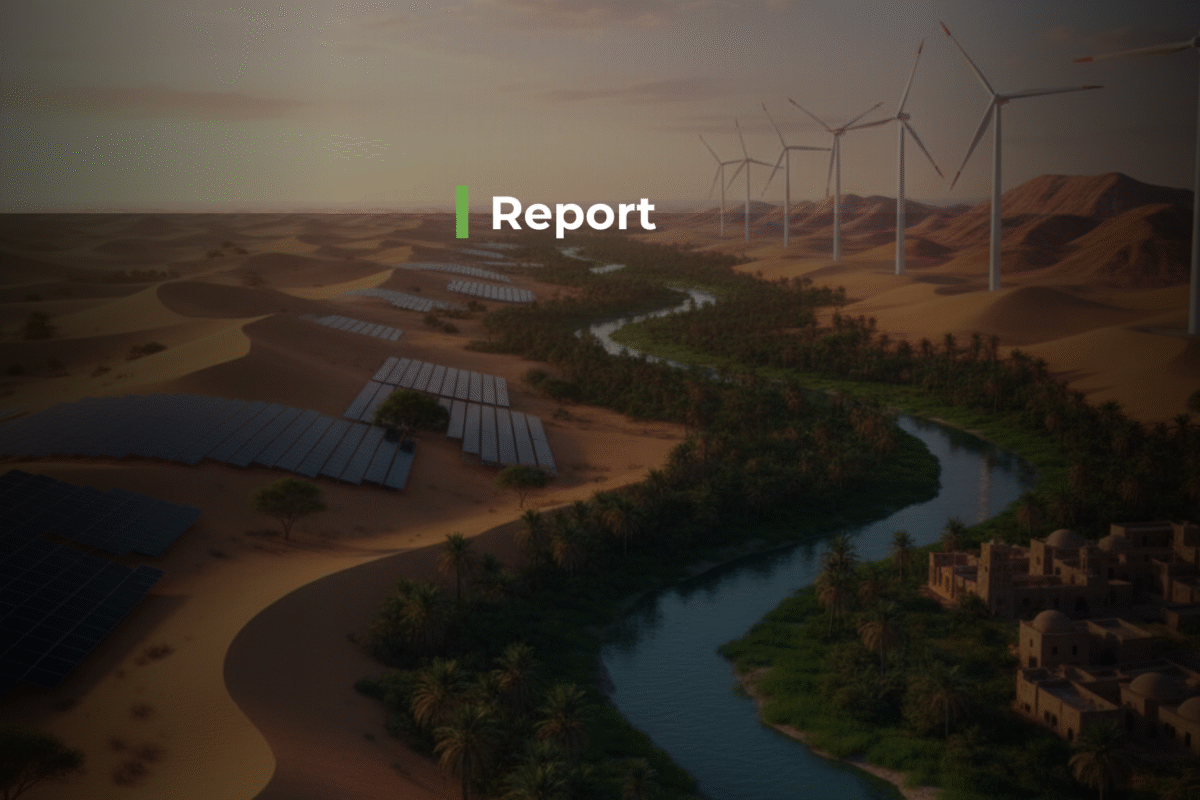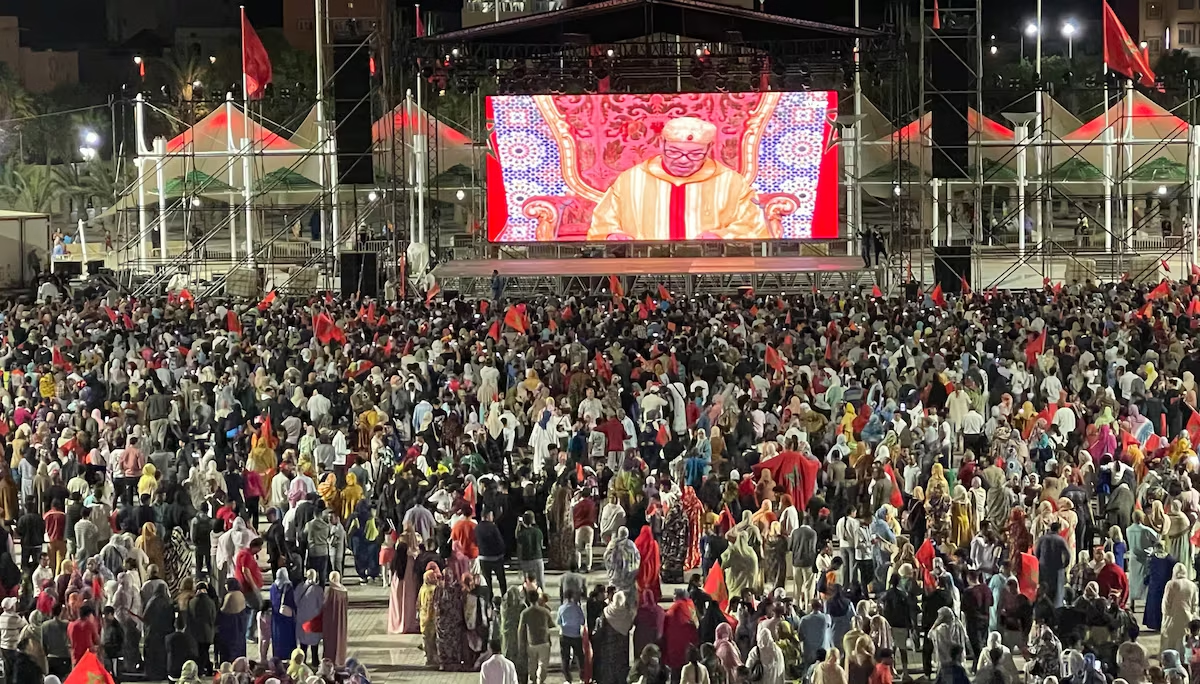[vc_row][vc_column][vc_column_text]
Although the tension between Morocco and Algeria has increased since the replacement of the Algerian president, it is unlikely that this will lead to a disruption of equilibrium that has existed in the Maghreb for decades.
The assumption of the presidency by Algerian President Abdelmajid Tebboune in December 2019 was an opportunity to revive the Moroccan-Algerian relations, which have a history ofbeing difficult and complex. However, the relationship has notimproved; rather, signs of tension and escalation towards Morocco are rising. On the one hand, the Algerian authorities[1]criticized Morocco sharply and repeatedly refused to respond to any political dialogue leading to the settlement of disputes between the two countries, despite Moroccan insistence. On the other hand, Algerian official and media support for Polisario’s escalation increases the tension, since October 21, 2020, at the Guerguerat crossing on the Moroccan-Mauritanian border[2].
Certainly, the new signs of escalation add to the tension between the two countries over the long standing issues, most notably the continued closure of the land borders, fueling the conflict over the Sahara, and competing for regional leadership;making the two countries fight a long cold war, and indicating that the conflict betweenboth countries is structural. This is why the new elements of tension are unlikely to disturb the equilibrium between Morocco and Algeria, due to their ability to keep tension to a minimum for decades – especially in comparison to other regions in the Middle East for example.
This paper argues that the new dynamic in Algerian diplomacy is mainly aimed at filling the diplomatic and political void characterizing Algerian foreign policy during the period between 2013 and 2019. That is, since the illness of former President Abdelaziz Bouteflikauntil he stepped down under the pressure of the Hirak popular movement. However, this new dynamic may deviate from its goal and head towards a clash with Morocco, whereby the Polisario could be used to provoke Morocco, as evidenced by the new signs of escalation. Nonetheless, this is unlikely to lead to a complete disruption ofthe decades-old equilibrium system between the two countries.
Indicators of new escalation
The Algerian authorities see the change in the state’s leadership (in December 2019) as an opportunity to resume the regional role ofAlgeriaand address its absence in sensitive issues related to its national security, whether in Mali or Libya. However, this dynamic carries unfriendly messages to Morocco, notably in the context of their long rivalry for regional leadership.
There are numerous facts and positions thatreflect the Algerian escalation against Morocco, most notably at the level of political and media rhetoric. For instance, President Abdelmajid Tebboune has been expressing “hardline, sometimes provocative, stances”[3] aboutthe contentious issues with Morocco, especially the one of the Sahara and the closure of the land borders since 1994. President Tebboune has expressed these positions on many occasions[4], yetthey seemed to become less provocative after he officially became president on December 20, 2019; however, his position remains solid to this moment.
Although the Algerian president has expressed in more than one speech that he does not bear any hostility to the “Moroccan people,” and constantly affirms that the Moroccan and Algerian people “love each other”, he does not hesitate to describe Morocco as the “occupier” and “colonist” of Western Sahara. Moreover, he refuses to respond to the Moroccan initiative[5] for a bilateral and inclusive dialogue, which was supported by the United Nations and other continental and regional organizations, as well as by popular and civil bodies from both countries.
The hardline speech of the Algerian president about the territorial integrity of Morocco is also noted in the Algerian army leadership in a more provocative manner. The September and October 2020 issues of “Al-jaysh” magazine[6]published by the Algerian Army Chief of Staff, included positions that question the Moroccan Sahara’s identity and its territorial integrity. To Morocco, these positions are an extension of the Algerian military ideology that bears hostility towards Morocco’s system and state, as well as a practical translation of the hostile attitudes previously expressed by the current Algerian Chief of Staff, Said Chengriha, in March 2016, when he was commander of the third military region[7].
On the military level, Algeria considered Morocco’s announcement of planning to build a military base in the Jerada region (east of the Kingdom) to house the soldiers as an “escalation”[8] against it. Although the Algerian authorities did not mention whether they would respond in kind to that action,the Algerian media[9]reported the plan of building one or two military bases on Algeria’s western borders, and neither the Algerian political nor military authorities denied it.
Relations between the two countries have also been diplomatically strained, after the Moroccan Consul in Oran described Algeria as the “enemy country”[10], whenaddressing Moroccan citizens on May 13th, 2020 in front of the consulate building. The strongest indicator of this tension is perhaps the number of Algerian institutions that replied to the Moroccan Consul’s statement, including the Algerian presidency and the Algerian Ministry of Foreign Affairs[11]. To avoid escalating tension with Algeria, Morocco withdrew its Consul General.
Although the Algerian authorities claim that they are not a party to the dispute over the question of the Sahara, their political behavior showed the opposite when they reacted angrily to some African countries opening their consulates in Laayoune and Dakhla. Moreover, the Algerian Ministry of Foreign Affairs protested diplomatically by recalling the Ambassador to the Ivory Coast in February 2020, under the pretext that the Ivorian Ministry of Foreign Affairs had made “implied” statements from Laayoune[12], which Algeria claimed were inconsistent with the founding principles of the African Union. For his part, the Moroccan Minister of Foreign Affairs and Cooperation criticized the Algerian interference in the affairs of other African countries, andresponded that “the opening of consulates is a sovereign decision of states”[13].
However, the Algerian escalation against Morocco reached an extreme when Algeria officially embraced[14]Polisario’s skirmishes against Morocco at the Guerguerat crossing. The Polisario provided military support for this action, and Algeria provided political and media coverage to it by hosting the Secretary-General of the Front on October 2nd, 2020, to say that any prejudice to any Saharawi person crossing Guerguerat means “a return to war”[15].
The speech of the Secretary-General of the Polisario was a signal to actually block the Guerguerat crossing, which caused the obstruction of commercial and civil traffic between Morocco and Mauritania during the period between October 21 and November 13, 2020. The Moroccan Foreign Ministry’s communiqué described this as “gang acts”. The Moroccan army announced a military operation – under rules of engagement that avoided contact with civilians – that ended this blockade. Plus, the army also established a defensive wall to repel any new attempt to block the crossing or civil and commercial movement[16].
Algeria considered the Moroccan army’s decision to end the obstruction of movement as a “violation of the ceasefire agreement” signed between the Polisario and the UN in 1991. The Polisario adopted this position and announced its withdrawal from the said agreement[17], which means returning to war with Morocco.
The limits of tension between the two neighbors
Despite the tensions and the media and political escalation, as well as Polisario’s announcement to withdraw fromthe 1991 ceasefire agreement, it is unlikely that the clash between the two parties–Algeria and the Polisario on the one hand and Morocco on the other – will result into the disruption of the decades-old equilibrium, for many reasons.
On one hand, the Algerian regime suffers from a diminished legitimacy due to popular pressure since February 2019, which does not seem to end soon, despite restricting civil and political freedoms during the Corona pandemic. The strongest indicator of this is perhaps the low participation rate in the referendum on the new constitution draft, on November 1st, 2020, which did not exceed 23.8%[18]. This means that the Algerian public opinion has responded broadly to the Hirak movement and to the forces that reject the new Constitution, thus diminishing the legitimacy of the existing political system headed by Abdelmajid Tebboune.
On the other hand, the ruling elites in Algeriaseem to be divided, as the current elites are removing the ones that ruled alongside former President Abdelaziz Bouteflika from the political scene and, in so doing, they led former ministers, prime ministers, security officials, and businessmen to prison. Plus, media reports[19] speak of a fierce competition between the new president and the army; as the former seeks to restore full power, while the latter considers itself the primary defender of the Algerian state.
Moreover, the economic and social repercussions of the Corona pandemic on both countries prevent the situation from derailing to an open confrontation between the two countries. These repercussions could contribute to more tension between society and the authorities in both countries, due to the rise in unemployment to 15%, the closure of thousands of small and medium enterprises, and a decrease in the gross national product by 3.9%. According to the expectations of the International Monetary Fund, the Algerian economy is likely to contract by 5.2%, with the budget deficit being the highest in the region[20].
The aforementioned economic, social and political indicators confirm that Algeria is going through a complex crisis, which seems to causethe new leadershipto escalate tension with Morocco, by creating skirmishes to distract the Algerian public opinion from its complex internal crises, as is currently happening by the Polisario militia in Guerguerat and throughout the defensive wall. However, it is not in Algeria’s interest to disturb the equilibrium system in the region, which has been adapted by the two countries for decades and backed-up by international and regional powers; thus it is unlikely thatAlgeria would allow its breakdown, even if other parties within the Algerian regime sought to do so.
Footnotes
[1]Thierry Portes and Mélanie Matarese, Algerian president to Le Figaro: “I am ready to go far to moralize the country”, February 19, 2020. https://www.lefigaro.fr/international/le-president-algerien-au-figaro-je-suis-pret-a-aller-loin-pour-moraliser-le-pays-20200219.
[2] APS, Ghali does not rule out a repeat of the GdeimIzik scenario in Guerguerat and warns against pushing for escalation. October 2, 2020. http://www.aps.dz/ar/monde/92990-2020-10-02-07-59-07
[3]Said Saddiki, Will Algerian Foreign Policy Change Towards its Neighbors in the Next Decade? https://mipa.institute/7431
[4] Speech of President Abdelmajid Tebboune on the day of his inauguration as President of Algeria, December 19, 2019.
[5] Speech of King Mohammed VI on the occasion of the 43rd anniversary of the Green March, November 6, 2018.
[6] See the following link: https://www.mdn.dz/site_principal/sommaire/revues/images/EldjeichSep2020Ar.pdf
[7] Exclusive… hostile statements to Morocco from the Algerian Major-General Said Chengriha. https://www.youtube.com/watch?v=B_1TOVzoG6s
[8] The interview of President Abdelmajid Tebboune with “France 24”, July 24, 2020.
[9]https://www.observalgerie.com/lalgerie-va-construire-deux-bases-militaires-a-la-frontiere-avec-le-maroc/2020/
[10]https://fr.le360.ma/politique/exclusif-entretien-telephonique-entre-nasser-bourita-et-son-homologue-algerien-215402
[11] Morocco withdraws its consul from Algeria… he described it as “the enemy country” and was asked to leave, Arabicpost, June 10, 2020.
[12]Communiqué of the Algerian Ministry of Foreign Affairs, February 20, 2020.
[13]Morocco: Opening consulates in Laayoune is a sovereign decision for countries, Asharq Al-awsat, February 29, 2020.
[14]Statement of the Algerian Parliament on the situation in the Sahara, November 16, 2020.
[15] APS, Ghali does not rule out a repeat of the GdeimIzik scenario in Guerguerat and warns against pushing for escalation. October 2, 2020. http://www.aps.dz/ar/monde/92990-2020-10-02-07-59-07
[16]le360 (and MAP), The El-Guerguerat crossing now completely secure, announced the general staff of the RFA, November 13, 2020. https://fr.le360.ma/politique/le-passage-del-guerguerat-a-present-completement-securise-annonce-letat-major-general-des-far-227219
[17]Bladi, The Polisario withdraws from the 1991 ceasefire agreement signed with Morocco.November 15, 2020. https://www.bladi.net/polisario-accord-cessez-le-feu,76170.html
[18] APS, The Constitutional Council proclaims the final and official results of the ballot. November 12, 2020. http://www.aps.dz/algerie/112733-le-conseil-constitutionnel-proclame-les-resultats-definitifs-et-officiels-du-scrutin
[19] Algeria: Trouble brewing between Tebboune and Chengriha? October 16, 2020. https://www.jeuneafrique.com/1058837/politique/algerie-de-leau-dans-le-gaz-entre-tebboune-et-chengriha/
[20] Worrying indicators for the Algerian economy due to Corona, AlqudsAlarabi, August 9, 2020.[/vc_column_text][/vc_column][/vc_row]
Smail Hamoudi
Dr. Ismail Hammoudi, holds a PhD in political science from the University of Mohammed V in Rabat in 2018, on Morocco’s security policy. He is currently working as a political science professor at the Multidisciplinary Faculty of Taza, Sidi Mohamed Ben Abdellah University. Dr. Hammoudi published several studies in scientific journals, as well as articles in research centers. He was previously a journalist and is still an opinion writer for "Al-Yaoum 24" and "Akhbar Al-Yaoum" newspapers.



